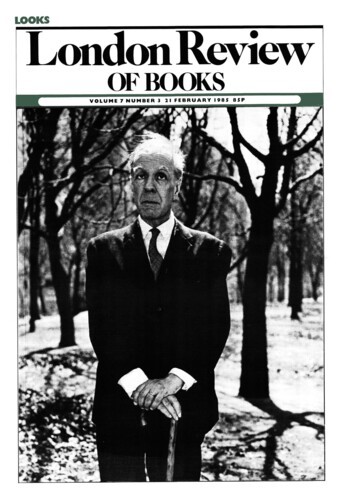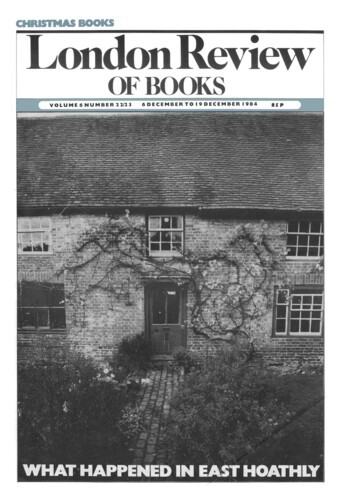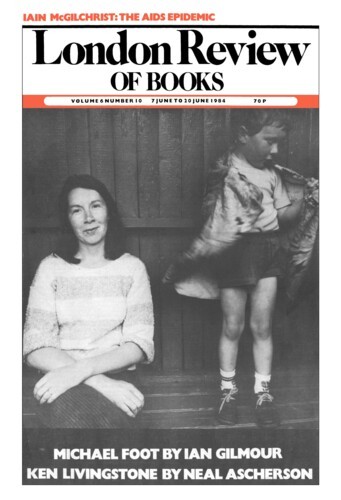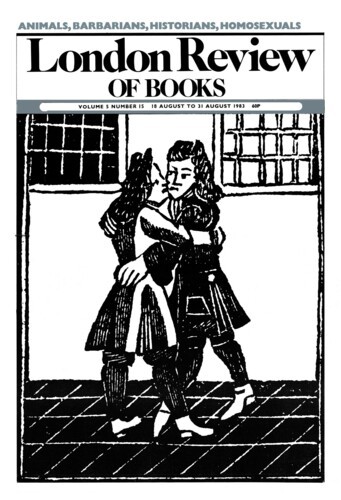Amor vincit Vinnie
Marilyn Butler, 21 February 1985
An American professor of English literature, small, female, fiftyish, moves about in a jumbo flying towards London. Through long practice, she solves the problems of avoiding the film and finding the best journals, though she fails to deflect the conversation of an unsophisticated American fellow-traveller, and she comes near to losing her luggage. Haven’t we read other novels that begin somewhere along this very journey? The question is least academic when the reader is a British woman academic heading for leave in the States, who has moreover on previous transatlantic crossings imbibed, at a conservative listing, Marilyn French’s Bleeding Heart, Malcolm Bradbury’s Stepping Westward and Rates of Exchange, and David Lodge’s Changing Places and Small World. Now, all around the large cabin, other refugees from Roger Moore in For Your Eyes Only and from Gene Wilder in The Woman in Red have their noses stuck into novels. Could it be that a certain kind of novel is being produced for this very market, just as a certain kind of film is? Are these other readers encountering looking-glass versions of themselves?




